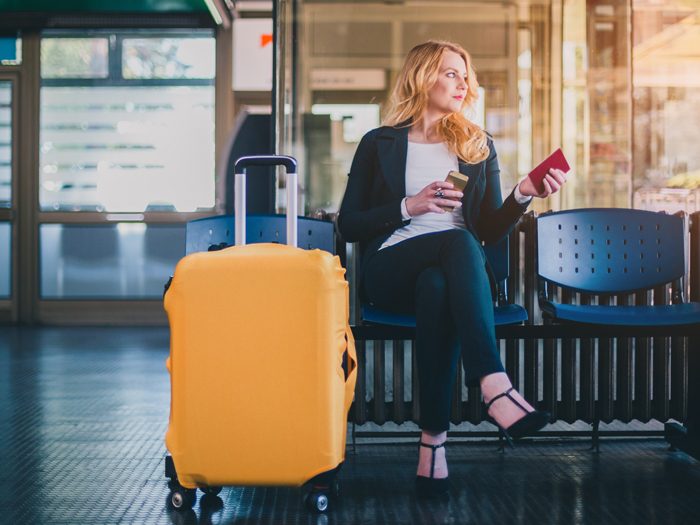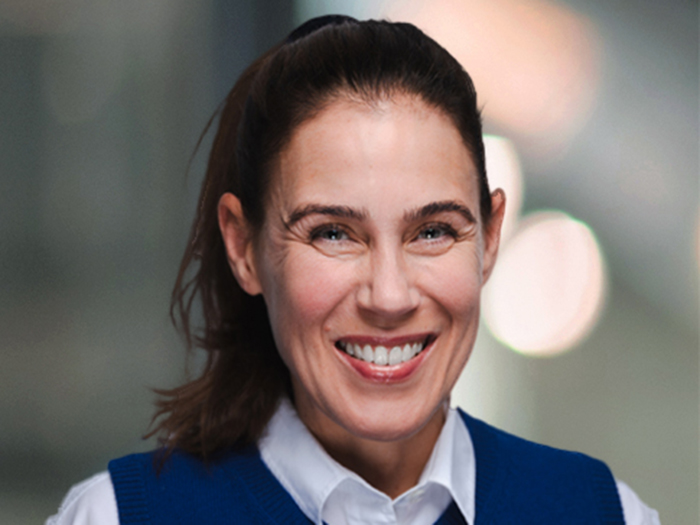90% of Female Business Travelers Don’t Feel Safe, Here’s What Companies Can Do to Help

By the time I left for a semester abroad in Italy during my junior year of college, I was almost a journalist by degree.
Quite literally, I had spent the last three years being trained to question everything.
It was only a few days after moving to Florence when two of my classmates at my temporary institute were sexually assaulted by police officers after a ride home gone wrong. I quickly learned that even awareness, education, and preparation can’t totally eliminate the risk of being a tourist.
As someone who was trained to question everything, I probably wouldn’t have questioned police officers — even in a foreign city.
It was there that I learned what being a tourist and a journalist had in common: You should never take information from an untrustworthy source.
Whether it’s driving one town over or hopping a trans-continental flight, any movement an employee makes for work purposes takes on a large liability, so it’s important for businesses to ensure the safety of their travelers and pick trusted accommodations.
Filling the Gaps
A Risk & Insurance® 2019 Risk All Star recognized this idea and the need for the constant communication and implemented it into his company’s travel-risk management strategy.
FM Global corporate risk manager Jeff Delmore wanted to devise a system where his company could mitigate travel risk before employees left the office, and then receive constant safety updates while the traveler is away.
The result was Travel Shield, an enterprise-wide travel risk management program that provides a risk-based ‘heat map’ that indicates security and health hazards all over the world. With this tool, Delmore gave FM Global the ability to identify potential trouble spots and make informed decisions when arranging accommodations.
“There was no incident that sparked the idea. As I became more involved in travel risk management for the company, people asked me about our existing program, and I thought there had to be a better way,” said Delmore.
As a woman of the industry and a traveler, Suzanne Sangiovese, Americas Operations Manager for Riskline, knows that as corporate culture evolves, so does the definition of the corporate traveler.
“In the last ten years we’ve seen a lot of changes in what a business traveler is,” said Sangiovese. “It used to be a white-Caucasian male of a certain wealth. Now we see diversity in types of work and work trips, so you see a lot more variety in corporate travelers.”
Such a variety, in fact, that half of corporate travel buyers say that their companies have three times as many female business travelers than they did just three years ago.
However, not everyone is impressed with the policies that accommodate the new travelers.
According to Forbes, 70% of employees feel that females are under-protected when it comes to travel risk, yet only 18% of companies have female specific travel protection policies.
As conversations surrounding the #MeToo Movement slow, an instilled awareness remains in society that the modern workplace can no longer represent one-size-fits-all employers.
“I think it just brought so much attention to accountability,” said Sangiovese of the industry since the #MeToo Movement.
“Part of what is big about accountability in the corporate world and especially in our industry of travel risk management is the whole duty-of-care obligation.”
Eliminating the Risk of Being Female
According to a report by the Global Business Travel Association, 82% of male and female employees agree that the level of travel risk that females are exposed to is different than it is for men—and it’s higher.
Some of the specific risks to females are sexual harassment, kidnapping, theft, destination-specific gender-norms and unsafe public transportation.
“If you’re taking a safety report for travel and keeping a female in mind, you’re creating something that’s safer for everyone. We are probably taking a lot more precautions than a male traveler would, especially in the evening or after dark. We are thinking at a heightened level of risk than normal,” said Sangiovese, speaking from the perspective of a female traveler.
To prove her theory beneficial, Sangiovese and the Riskline team came up with a solution that addresses the specific needs of women.
The result was the Female Traveler Safety Reports.
The reports, which cover 220 different countries and territories, have full-time female Riskline analysts performing real-time safety reports to measure risk all over the world.
In 2018, 90% of female travelers reported that safety concerns affected what they did on their personal time while traveling. The Female Traveler Safety Reports help businesses identify these security issues to better cater female travel plans.
“It’s definitely focused a lot on what women need. It covers how cultures are different and tells women how to dress and how to act, something they may not have known before traveling there,” said Sangiovese.
While some companies argue that having separate travel policies for males and females will create attitudes of gender-bias, Sangiovese claims that it’s simply adjusting the model and catering to separate needs in a way that it should have always been done.
“I think the justification is that it’s always been catered towards men,” said Sangiovese of travel policies.
In a way that’s unique and effective, Riskline has been able to create “a report by women, for women” that embraces the unique qualities of each gender.
When it comes to the future, Sangiovese is optimistic that products such as the Female Traveler Safety Reports and Travel Shield will help everyone get the most out of their travel.
“I think the whole idea of having a report for female travelers will not be unique. It’ll just be part of that duty-of-care package.”
While the global temperament may never keep travel policies consistent, awareness surrounding female travel risk is championing the modern corporate workplace; a place is determined to be free of patriarchy and politics.
Because as I saw during my first week in Italy, no amount of education and awareness can eliminate total risk for any type of traveler. &











